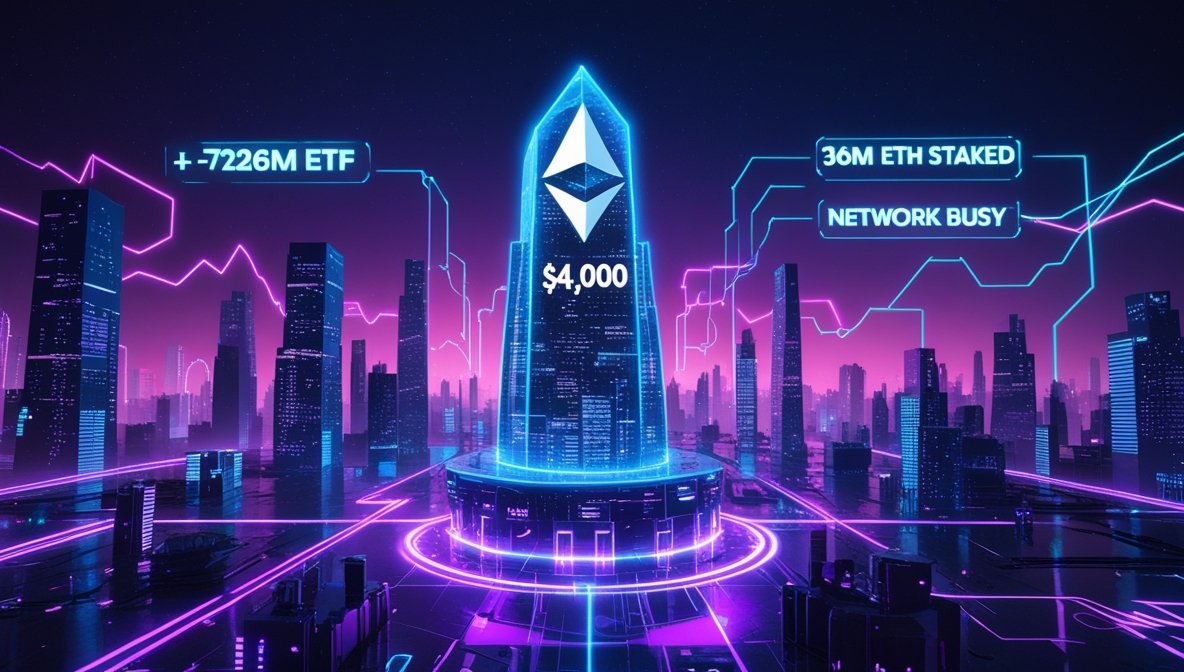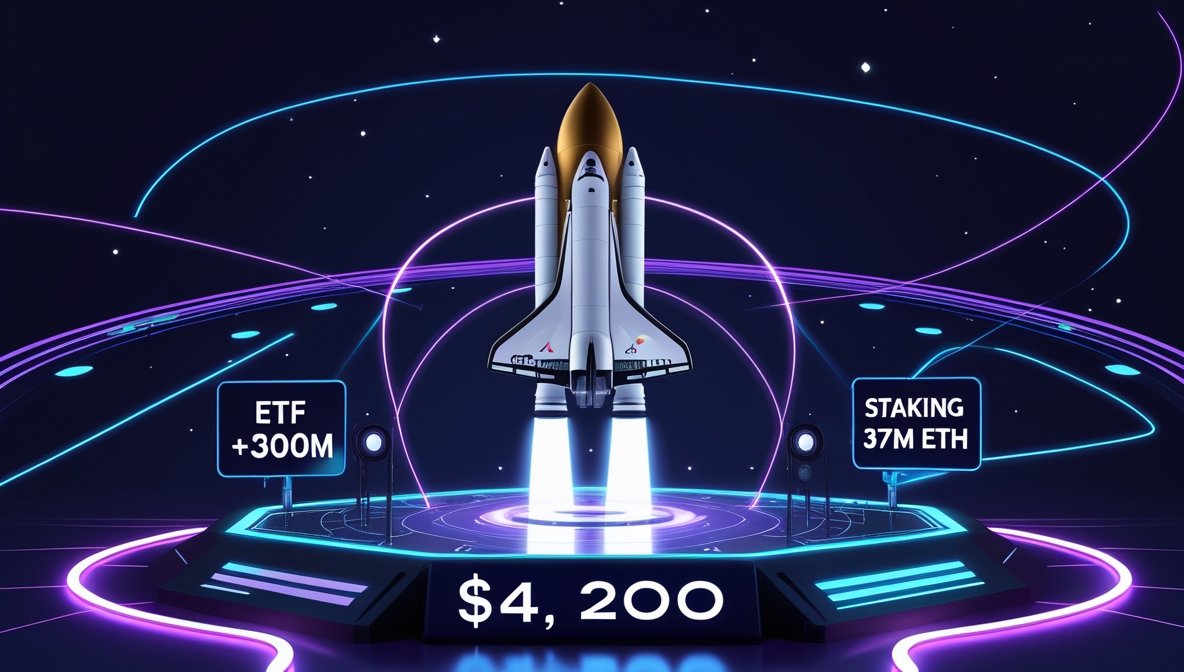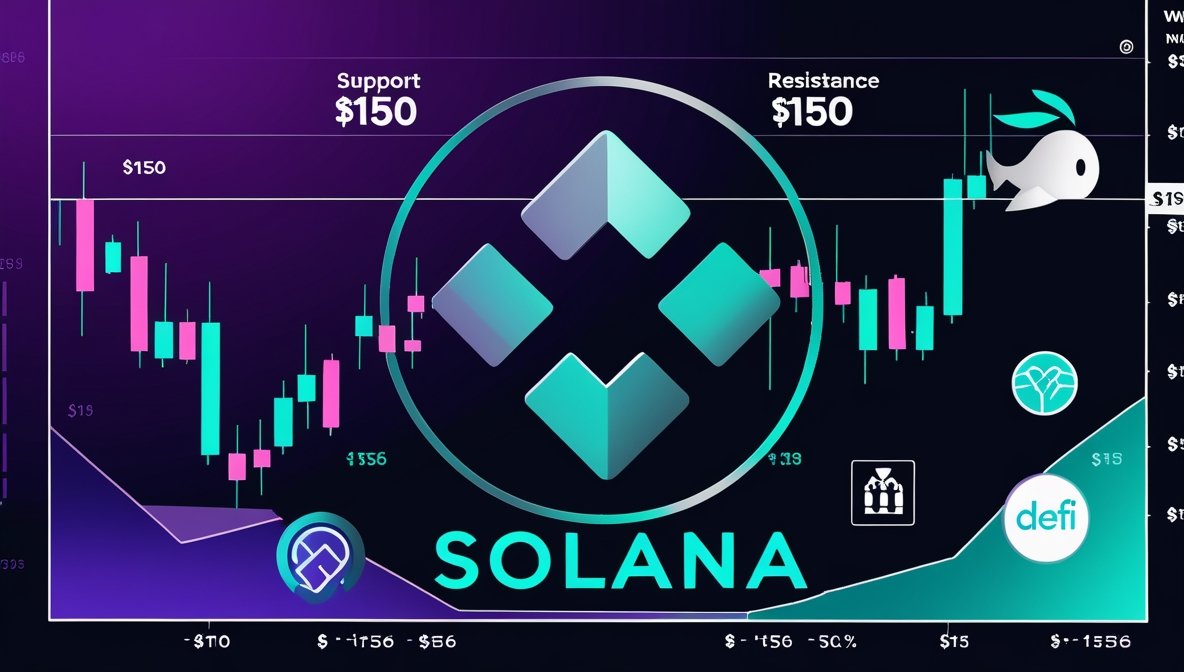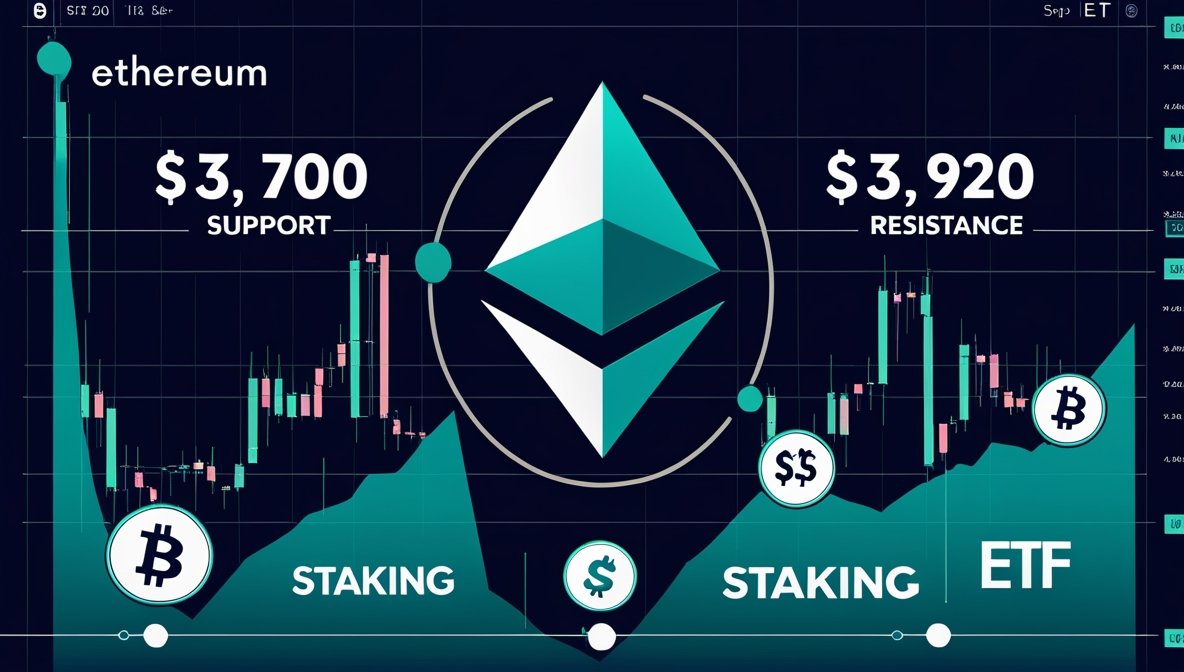Ethereum Price Analysis: Can ETH Make a Clean Break Toward $4,000?
Our latest ETH price analysis reveals ETH trading near $3,685, rebounding from an intraday low of $3,585 and a high above $3,750. With powerful trends converging, here are four strategic signals that may steer Ethereum toward the $4,000 mark:
1. Ethereum ETFs Outpacing Bitcoin Inflows
Spot Ether ETFs have attracted approximately $2.39 billion in net inflow over the past six trading days—vastly eclipsing Bitcoin ETF inflows ($827 million). This rare flip in institutional preference underlines ETH’s growing dominance in traditional adoption circles.
2. Consolidation Near $3,730 Sets Up Resistance Zone
Ethereum has been consolidating around $3,730, just beneath the $4,000 psychological level. It remains above both its 100-day and 200-day moving averages, which recently turned bullish after a crossover near $2,500—hinting at sustainable technical strength.
3. Network Activity and Exchange Reserves Offer Support
On-chain metrics show Ethereum exchange reserves shrinking to a multi-year low (about 19.3M ETH)—demonstrating long-term holding behavior and reduced selling pressure. Network usage is also robust, with daily transactions averaging 1.65M, a 45% year-over-year increase.
4. Institutional Forecasts Signal Growing Momentum
Galaxy Digital CEO Michael Novogratz predicts ETH may outperform Bitcoin in the next 3–6 months, targeting a breakout above $4,000, driven by tight supply, ETF flows, and institutional demand.
Quick Take:
This ethereum price analysis paints a bullish narrative: ETF inflows dominating, strong technical consolidation, long-term holding behavior, and institutional confidence all fuel an upside path toward $4,000+. A clean volume-backed breakout above $3,800–$3,850 could open that door. However, failure to maintain support near $3,600–$3,630 may invite deeper pullback toward $3,300. Keep an eye on ETF flow momentum, exchange reserve trends, and breakout validation for next direction.
Ethereum Price Analysis: Can ETH Make a Clean Break Toward $4,000?
Our latest ethereum price analysis reveals ETH trading near $3,685, rebounding from an intraday low of $3,585 and a high above $3,750. With powerful trends converging, here are four strategic signals that may steer Ethereum toward the $4,000 mark:
1. Ethereum ETFs Outpacing Bitcoin Inflows
Spot Ether ETFs have attracted approximately $2.39 billion in net inflow over the past six trading days—vastly eclipsing Bitcoin ETF inflows ($827 million).. This rare flip in institutional preference underlines ETH’s growing dominance in traditional adoption circles.
2. Consolidation Near $3,730 Sets Up Resistance Zone
Ethereum has been consolidating around $3,730, just beneath the $4,000 psychological level. It remains above both its 100-day and 200-day moving averages, which recently turned bullish after a crossover near $2,500—hinting at sustainable technical strength.
3. Network Activity and Exchange Reserves Offer Support
On-chain metrics show Ethereum exchange reserves shrinking to a multi-year low (about 19.3M ETH)—demonstrating long-term holding behavior and reduced selling pressure. Network usage is also robust, with daily transactions averaging 1.65M, a 45% year-over-year increase.
4. Institutional Forecasts Signal Growing Momentum
Galaxy Digital CEO Michael Novogratz predicts ETH may outperform Bitcoin in the next 3–6 months, targeting a breakout above $4,000, driven by tight supply, ETF flows, and institutional demand.
Quick Take:
This ethereum price analysis paints a bullish narrative: ETF inflows dominating, strong technical consolidation, long-term holding behavior, and institutional confidence all fuel an upside path toward $4,000+. A clean volume-backed breakout above $3,800–$3,850 could open that door. However, failure to maintain support near $3,600–$3,630 may invite deeper pullback toward $3,300. Keep an eye on ETF flow momentum, exchange reserve trends, and breakout validation for next direction.
YOU MIGHT ALSO LIKE: Ethereum Price Analysis: 4 Strategic Signals Showing a Path to $4K











